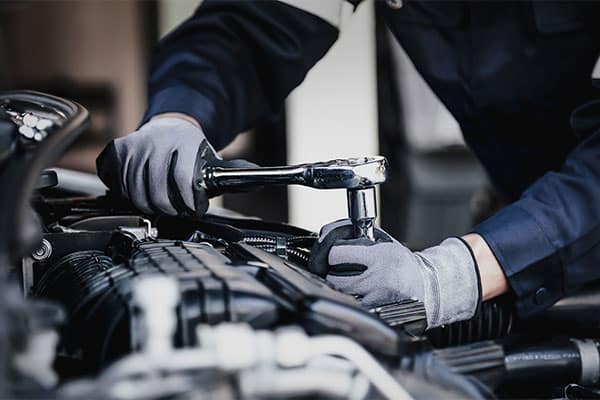All Categories
Featured
Normal engine tune-ups are crucial for keeping your vehicle's performance, boosting gas efficiency, and extending its life expectancy. Whether you're a skilled automobile owner or a beginner, recognizing the vital elements of an engine tune-up can aid you keep your auto running efficiently for several years. Right here are some necessary suggestions to guide you through the process.
- Adjustment the Flicker Plugs. Ignition system are tiny but mighty elements that play an important function in igniting the fuel-air mixture in your engine. Gradually, they can wear or come to be fouled, resulting in poor engine efficiency, decreased fuel effectiveness, and hard begins.
Throughout a tune-up, examine your stimulate plugs for wear and change them as necessary. For many lorries, ignition system must be replaced every 30,000 to 100,000 miles, depending upon the type and product. Fresh ignition system make certain effective burning and smoother engine procedure.
- Check and Replace the Air Filter. The air filter is your engine's first line of defense against dust, debris, and other contaminants. A stopped up or unclean air filter can restrict air movement, creating your engine to function more difficult and take in even more gas.
Inspect your air filter throughout a tune-up and change it if it's dirty or past its suggested solution interval. A tidy air filter improves engine effectiveness and improves fuel economic situation.
- Inspect the Gas System. In time, your gas system can accumulate dirt and carbon down payments, decreasing engine performance and gas efficiency. Cleaning the fuel injectors and gas lines throughout a tune-up aids maintain correct gas distribution and combustion.
You can make use of a gas system cleaner or have a specialist mechanic do a much more comprehensive cleansing. This action is specifically helpful for older vehicles or vehicles regularly driven in stop-and-go website traffic.
- Examine the Belts and Tubes. Belts and pipes are vital for various engine features, such as running the generator, water pump, and a/c. Throughout a tune-up, check for splits, fraying, or indicators of endure these parts.
Replace any kind of damaged belts and tubes to prevent potential malfunctions. A busted belt or dripping tube can result in engine overheating or loss of power, so addressing these concerns immediately is essential.
- Replace the Engine Oil and Oil Filter. Engine oil is crucial for oiling relocating components, minimizing rubbing, and managing engine temperature level. Gradually, oil comes to be polluted and loses its performance.
As part of a tune-up, replace the engine oil and oil filter. Utilize the kind of oil recommended by your lorry's producer and stick to the recommended change periods. Tidy oil maintains your engine running smoothly and avoids premature wear.
- Test the Battery and Charging System. A healthy battery is vital for beginning your vehicle and powering its electric systems. During a tune-up, check the battery's voltage and examine the terminals for corrosion. Clean the terminals if needed and ensure a protected connection.
In addition, examination the alternator and charging system to guarantee your battery remains charged throughout operation. If your battery is weak or old, take into consideration replacing it to avoid unanticipated breakdowns.
- Flush and Refill the Coolant. The air conditioning system regulates your engine's temperature, preventing it from overheating. Old or contaminated coolant can lose its efficiency, leading to possible engine damage.
Throughout a tune-up, purge the old coolant and change it with a fresh blend. Examine the radiator, thermostat, and pipes for leaks or damage. Keeping the cooling system in excellent problem guarantees your engine runs at the best temperature level.

- Address Warning Lights and Unusual Signs. Modern lorries are equipped with analysis systems that notify you to potential problems via dashboard caution lights. If your check engine light or any kind of other alerting signs are on, resolve them during your tune-up.
In addition, take note of unusual signs such as weird noises, rough idling, or reduced fuel effectiveness. An expert mechanic can detect and deal with these problems during the tune-up process.
- Do Not Fail To Remember the Exhaust System. Your automobile's exhaust system eliminates dangerous gases from the engine and ensures correct exhausts. Evaluate the exhaust system for leakages, corrosion, or damages during a tune-up. A defective exhaust system can influence engine performance and cause environmental and safety and security problems.
- Use High-Quality Components and Fluids. When replacing components or rounding off liquids throughout a tune-up, constantly choose top notch items that meet your vehicle's specifications. Using substandard components or incorrect fluids can negatively impact your engine's efficiency and longevity.
Verdict: Regular Tune-Ups Are Secret to Engine Wellness. Making the effort to tune up your engine guarantees it operates efficiently, conserves fuel, and reduces the risk of break downs. Whether you do these tasks yourself or depend on a relied on mechanic, routine tune-ups are an investment in your vehicle's integrity and long life. Adhere to these suggestions, and you'll delight in a smoother, much more reliable trip for many years ahead.
Latest Posts
Bare Bones Furnishings: Your Glens Falls Location for Home Fundamentals
Connect With Weathercraft Today
Vision Center South - Trusted Pediatric Eye Exams for Strong Sight
